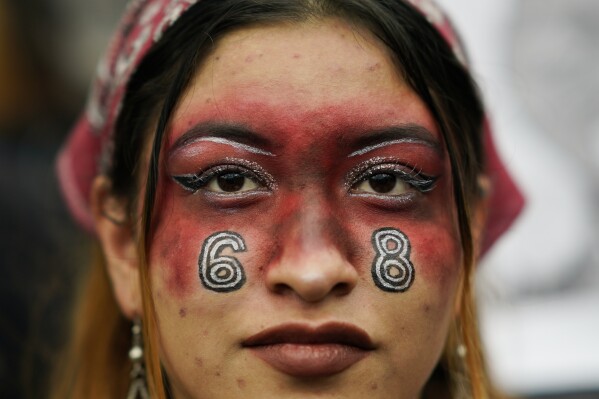The official count of disappeared people in Mexico could be an underestimate, say UN and advocates
MEXICO CITY (AP) — Last year, Mexico’s official number of missing people grew to over 100,000 for the first time. This year it stands even higher with authorities announcing Tuesday that 111,916 people have been “forcibly disappeared” and never found again since records began in 1962.
The true number could be higher still, however, due to systemic issues with the country’s register of missing people, according to the U.N. Committee on Enforced Disappearances which reported the figure. For advocates and victims, it’s a sign that Mexico’s current administration is taking another “step backwards” since the register was conceived in 2018.
While acknowledging the Mexican government cooperated with some of its requests since its last full observations in 2018, the U.N. said the national register still lacks a “clear and transparent methodology” or disaggregated data on the sexual orientation, gender identity, socioeconomic and migrant status of victims, among other demographics.
Elsewhere in the report, the U.N. said Mexican authorities were guilty of “revictimizing” some grieving relatives, including by accusing families of hiding abducted loved ones.
 Generations of students remember 1968 massacre in march through Mexico City
Generations of students remember 1968 massacre in march through Mexico City
 Israel arrests Mexican former diplomat wanted for alleged sexual assault, Mexico’s president says
Israel arrests Mexican former diplomat wanted for alleged sexual assault, Mexico’s president says
 Mexico’s rescue and drug-sniffing dogs start out at the army’s puppy kindergarten
Mexico’s rescue and drug-sniffing dogs start out at the army’s puppy kindergarten
María Luisa Aguilar has worked as an advocate for missing people in Mexico for 15 years and said victims’ families “face a lot of risks” reporting their loss officially.
“In many places in Mexico, what you have is the authorities colluded with those who have been the perpetrators of the disappearances,” said Aguilar, now international coordinator for the Miguel Agustín Pro Juárez human rights center. In others cases families “don’t even have authorities to receive the reports.”
The government register also includes no “mechanism for relatives of disappeared people to participate,” said the committee, also noting “the resistance of some authorities” to report to the centralized register, without specifying which authorities or where.
When the register for missing people was written into law in 2018 it was welcomed by victims and advocates. More recently, however, it has come under attack by the same administration which created it.
In July, President Andrés Manuel López Obrador announced a recount of missing people, claiming the official register number was impossibly high. The following month he welcomed the resignation of then head of the National Search Commission tasked with keeping the register, Karla Quintana.
For advocates like Aguilar, what was once a sign of hope is now being taken apart from the inside.
“It was a great initiative: for the first time we had a register that actually tried to include most of the complaints,” said Aguilar. “Four years later the current government, the same administration, is now concerned that the numbers are too high.”
“The main concern is not whether these records are under or over the real number,” said Aguilar. “The thing is (López Obrador’s) review is being done more from a political perspective than to actually look at the main problem: having a crisis of this size.”
The Mexican interior department did not immediately respond to the Associated Press’ request for comment by email.
Disclaimer: The copyright of this article belongs to the original author. Reposting this article is solely for the purpose of information dissemination and does not constitute any investment advice. If there is any infringement, please contact us immediately. We will make corrections or deletions as necessary. Thank you.







